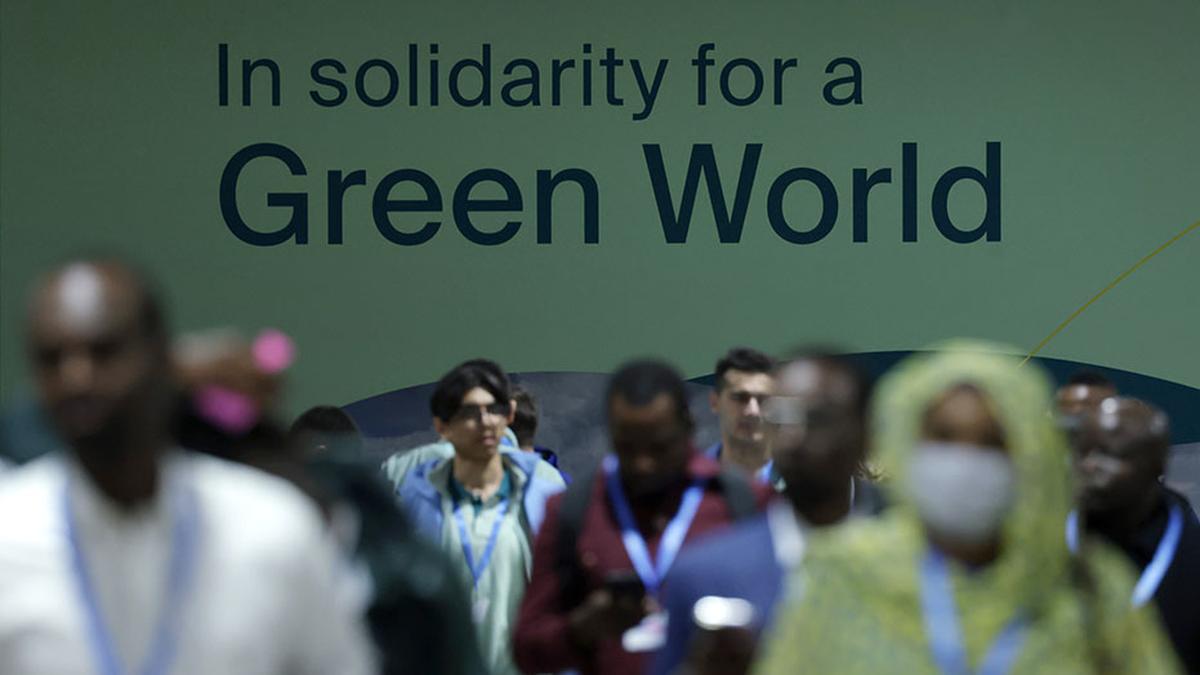
Climate finance are not “investment goals,” says India at COP29 summit in Baku
The Hindu
India emphasizes at COP29 in Baku that climate finance must be provided by developed countries to support developing nations.
At the ongoing COP29 negotiations in Baku, India stated that climate finance — the money that’s necessary to incentivise and facilitate developing countries’ adoption of renewable energy sources over fossil fuels — should not be seen as “investment goals” by developed countries.
“Climate finance cannot be changed into an investment goal when it is a unidirectional provision and mobilisation goal from the developed to the developing countries. The Paris Agreement is clear on who is to provide and mobilise the climate finance — it is the developed countries,” said a statement by India’s lead negotiator, Naresh Pal Gangwar, on late Thursday (November 14, 2024). The statement was formally made public by the Union Environment Ministry on Friday (November 15, 2024). Currently, $5-6.8 trillion worth of climate finance until 2030 is being mooted at Baku.
Several technical issues are being deliberated upon at Baku. The key moment, however, that the hundreds of negotiators are working upon is the New Collective Quantified Goal on Climate Finance (NCQG). This is an estimate of the money that developing countries will collectively require from developed countries to adapt to climate change and shift to renewable sources without compromising on developmental needs.
The existing estimate, agreed upon in 2009, was to mobilise and deliver $100 billion annually from 2020-2025 but was fulfilled — not to universal agreement — only in 2022. However, the countries also collectively decided, in 2021, to increase this, come up with a new number, and make it operational by 2025. This is why the Baku COP is expected to deliver on a new number to make the COP a success.
Intervening on behalf of a collective called ‘Like-Minded Developing Countries (LMDCs), at the High-Level Ministerial on Climate Finance in Baku, India, highlighted that the impacts of climate change were increasingly becoming evident in the form of unfolding disasters.
“We are at a crucial juncture in our fight against climate change. What we decide here will enable all of us, particularly those in the Global South, to not only take ambitious mitigation action but also adapt. This CoP is historic in this context,” said Mr. Gangwar.
The statement firmly asserted that, recognising the historical responsibilities and differences in capacities, the UNFCCC and its Paris Agreement envisage a global response to climate change, adhering to the principles of equity and common but differentiated responsibilities and respective capacities. “The context of different national circumstances, sustainable development goals, and poverty eradication, particularly with respect to the Global South, should not be lost sight of. These principles must form the basis for a strong outcome on the New Collective Quantified Goal at CoP29,” it added.











